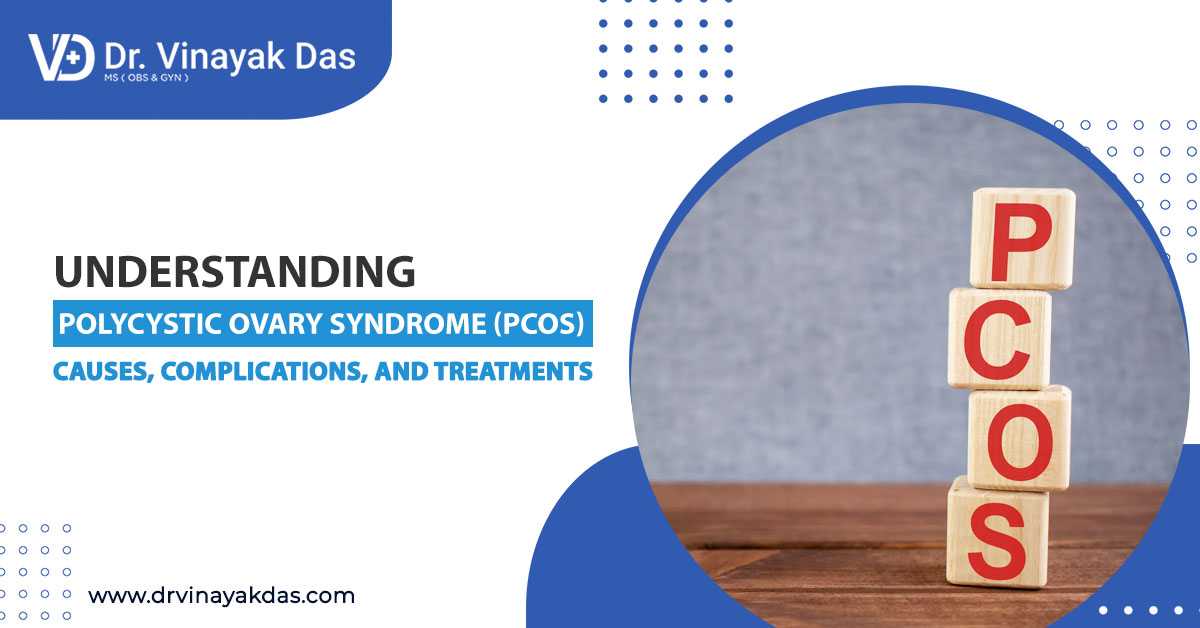Polycystic Ovary Syndrome (PCOS) is a common hormonal disorder affecting millions of women worldwide. It disrupts a woman's hormonal balance and often leads to various physical and emotional symptoms. Understanding the causes, potential complications, and available treatments for PCOS is crucial in managing the condition effectively and improving the quality of life for those affected.
What is PCOS?
PCOS is a condition characterized by the presence of multiple small cysts on the ovaries. It often manifests with irregular menstrual cycles, excess androgen levels (male hormones), and ovulatory dysfunction. While the exact cause of PCOS is not fully understood, research suggests a combination of genetic, environmental, and lifestyle factors.
Causes of PCOS
Genetic Factors: Women with a family history of PCOS or related conditions such as diabetes are at higher risk. Several genes have been linked to the condition, indicating a hereditary component.
Hormonal Imbalance: PCOS is primarily a hormonal disorder. Women with PCOS have higher levels of androgens, which can interfere with the normal function of the ovaries, resulting in irregular ovulation and menstruation.
Insulin Resistance: A significant number of women with PCOS have insulin resistance, where the body’s cells do not respond properly to insulin. This can lead to elevated insulin levels, which can stimulate the ovaries to produce more androgens.
Low-Grade Inflammation: Women with PCOS often have low-grade inflammation that can stimulate polycystic ovaries to produce androgens, which further exacerbates the condition.
Complications of PCOS
If left untreated, PCOS can lead to several health complications:
Infertility: The hormonal imbalances associated with PCOS can interfere with ovulation, making it difficult for women to conceive.
Metabolic Syndrome: Women with PCOS are at a higher risk of developing metabolic syndrome, a cluster of conditions that increase the risk of heart disease, stroke, and diabetes.
Type 2 Diabetes: Due to insulin resistance, women with PCOS are more susceptible to developing type 2 diabetes.
Endometrial Cancer: Chronic anovulation (lack of ovulation) and irregular periods increase the risk of endometrial hyperplasia, which can lead to endometrial cancer.
Sleep Apnea: Women with PCOS are more likely to develop sleep apnea, especially if they are overweight or obese.
Depression and Anxiety: The emotional and psychological impact of PCOS can lead to increased rates of depression and anxiety among affected women.
Symptoms of PCOS
The symptoms of PCOS can vary widely from person to person but commonly include:
- Irregular menstrual cycles or absence of periods
- Excessive hair growth (hirsutism) on the face and body
- Acne and oily skin
- Thinning hair or hair loss on the scalp
- Weight gain or difficulty losing weight
- Darkening of the skin, especially around the neck or armpits
- Skin tags in the underarm or neck area
Treatment Options for PCOS
While there is no cure for PCOS, various treatment options can help manage its symptoms and reduce the risk of complications. The treatment approach often depends on the individual's symptoms, health goals (such as improving fertility or reducing excess hair growth), and risk factors.
1. Lifestyle Modifications
Dietary Changes: A balanced diet rich in fruits, vegetables, lean proteins, and whole grains can help regulate insulin levels. Limiting processed foods, sugary snacks, and saturated fats is also beneficial.
Regular Exercise: Physical activity helps lower blood sugar levels and can improve insulin sensitivity, thus managing PCOS symptoms.
Weight Management: Even a modest weight loss of 5-10% of body weight can significantly improve symptoms and reduce the risk of complications.
2. Medications
Hormonal Birth Control: Birth control pills, patches, or intrauterine devices (IUDs) can regulate menstruation, reduce androgen levels, and alleviate symptoms like acne and excessive hair growth.
Anti-Androgen Medications: These medications help block the effects of androgens and can reduce hair loss and excessive hair growth.
Metformin: Often used to treat type 2 diabetes, metformin can improve insulin resistance and help regulate menstrual cycles.
Fertility Medications: For women trying to conceive, medications like clomiphene or letrozole can stimulate ovulation.
3. Surgical Options
Ovarian Drilling: In cases where other treatments are ineffective, a minor surgical procedure called ovarian drilling may be performed. This involves creating small holes in the ovaries using a laser or thin heated needle to restore normal ovulation.
4. Alternative Therapies
Acupuncture and Herbal Remedies: Some women find relief from symptoms through acupuncture or herbal treatments, though these methods should be used in consultation with a healthcare professional.
5. Psychological Support
Counseling and Therapy: Dealing with the emotional and psychological effects of PCOS can be challenging. Seeking support through counseling or therapy can help women cope with the mental health aspects of the condition.
Conclusion
PCOS is a complex condition that requires a multifaceted approach for effective management. While lifestyle changes and medications can help alleviate symptoms, ongoing monitoring and personalized treatment plans are crucial in preventing long-term complications. With the right support and treatment, women with PCOS can lead healthy and fulfilling lives.
Understanding and addressing PCOS involves not only managing the physical symptoms but also providing emotional and psychological support. By spreading awareness and encouraging early diagnosis and intervention, we can significantly improve the health and wellbeing of those affected by this condition.





